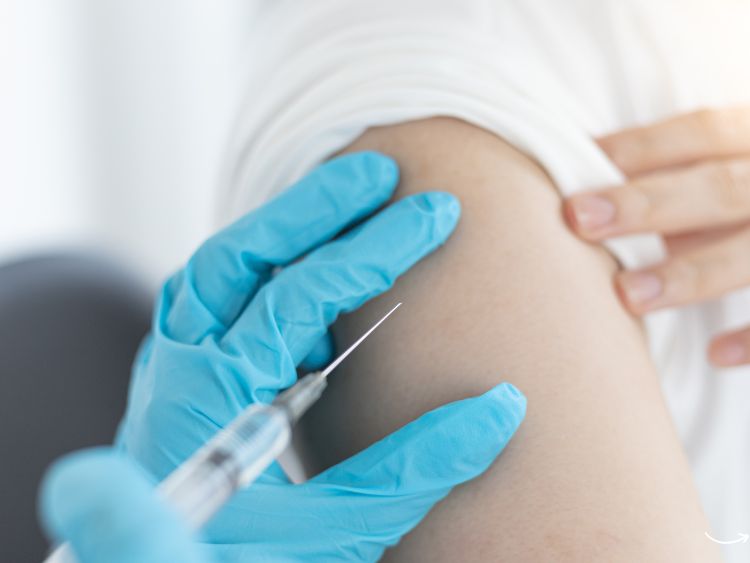Vaccination is a critical component in maintaining the health and productivity of goats. By ensuring that your herd is properly vaccinated, you can prevent the spread of infectious diseases, enhance overall goat health, and safeguard your investment. This article delves into the importance of vaccination in goats, common vaccines, and best practices to keep your goats in top shape.
Raising goats can be both rewarding and challenging. One of the primary responsibilities of a goat owner is to ensure the health and well-being of their animals. Vaccination is a vital part of this process, acting as a shield against various infectious diseases. So, why is vaccination in goats so crucial? Let’s dive into the specifics.
The Importance of Vaccination in Goats
Vaccination helps to build immunity in goats, protecting them from diseases that could otherwise cause severe health issues or even death. By vaccinating your goats, you’re not only protecting them but also preventing the spread of diseases to other animals and, potentially, humans.
Benefits of Vaccination
- Disease Prevention: Vaccines prevent common diseases such as tetanus, enterotoxemia, and clostridial infections.
- Herd Immunity: Widespread vaccination creates herd immunity, reducing the overall disease burden.
- Economic Benefits: Healthy goats mean fewer veterinary bills and better productivity in terms of milk, meat, and wool.
- Animal Welfare: Vaccinated goats live healthier, longer lives.
Common Vaccines for Goats
There are several vaccines that goat owners should consider, depending on their region and the specific needs of their herd.
CD&T Vaccine
The CD&T vaccine is one of the most essential vaccines for goats. It protects against:
- Clostridium perfringens Type C and D: Causes enterotoxemia or “overeating disease.”
- Clostridium tetani: Causes tetanus, which can be fatal.
Pneumonia Vaccine
Pneumonia is a common respiratory issue in goats, especially in young kids and during stressful conditions. Vaccinating against pneumonia can prevent outbreaks in your herd.
Rabies Vaccine
While not commonly administered to all goats, the rabies vaccine is crucial in areas where rabies is prevalent or if goats have frequent contact with other animals or humans.
Caseous Lymphadenitis (CL) Vaccine
Caseous lymphadenitis is a chronic disease that affects lymph nodes, causing abscesses. The CL vaccine helps prevent the spread of this contagious disease.
Foot-and-Mouth Disease (FMD) Vaccine
In regions where FMD is a concern, vaccinating goats can prevent this highly contagious viral disease, which affects the hooves and mouth.
Best Practices for Vaccinating Goats
To ensure the effectiveness of vaccinations, it’s essential to follow best practices.
Timely Vaccinations
- Initial Vaccination: Administer the first dose to kids at 4-6 weeks of age.
- Boosters: Follow up with booster shots as recommended by your veterinarian.
Proper Handling and Storage
- Storage: Keep vaccines refrigerated and protected from light.
- Handling: Use clean, sterile equipment to avoid contamination.
Administering the Vaccine
- Site of Injection: Typically, vaccines are administered subcutaneously (under the skin) or intramuscularly (into the muscle).
- Dosage: Follow the manufacturer’s guidelines for dosage and administration.
Common Questions about Goat Vaccination
Why is it essential to vaccinate goats regularly?
Regular vaccination is crucial to maintain immunity against various diseases. It ensures that the goats’ immune system is always ready to combat infections.
How often should goats be vaccinated?
The frequency of vaccination depends on the specific vaccine and the disease it targets. Generally, goats need an initial series of shots followed by annual boosters.
Can I vaccinate my goats myself?
Yes, many goat owners vaccinate their animals themselves. However, it’s essential to receive proper training from a veterinarian to ensure correct administration.
Are there any side effects of goat vaccines?
Most goats experience minimal side effects, such as temporary swelling at the injection site. Severe reactions are rare but possible. Always monitor your goats after vaccination.
Conclusion
Vaccination in goats is a cornerstone of herd health management. By preventing diseases, you ensure the well-being of your goats and protect your investment. Regular vaccinations, proper handling, and adherence to veterinary guidelines are crucial for maintaining a healthy herd.
For further reading and authoritative resources on goat vaccination, consider the following URLs:
- American Veterinary Medical Association (AVMA)
- United States Department of Agriculture (USDA)
- Centers for Disease Control and Prevention (CDC)
By staying informed and proactive, you can ensure that your goats lead healthy, productive lives. Happy herding!



